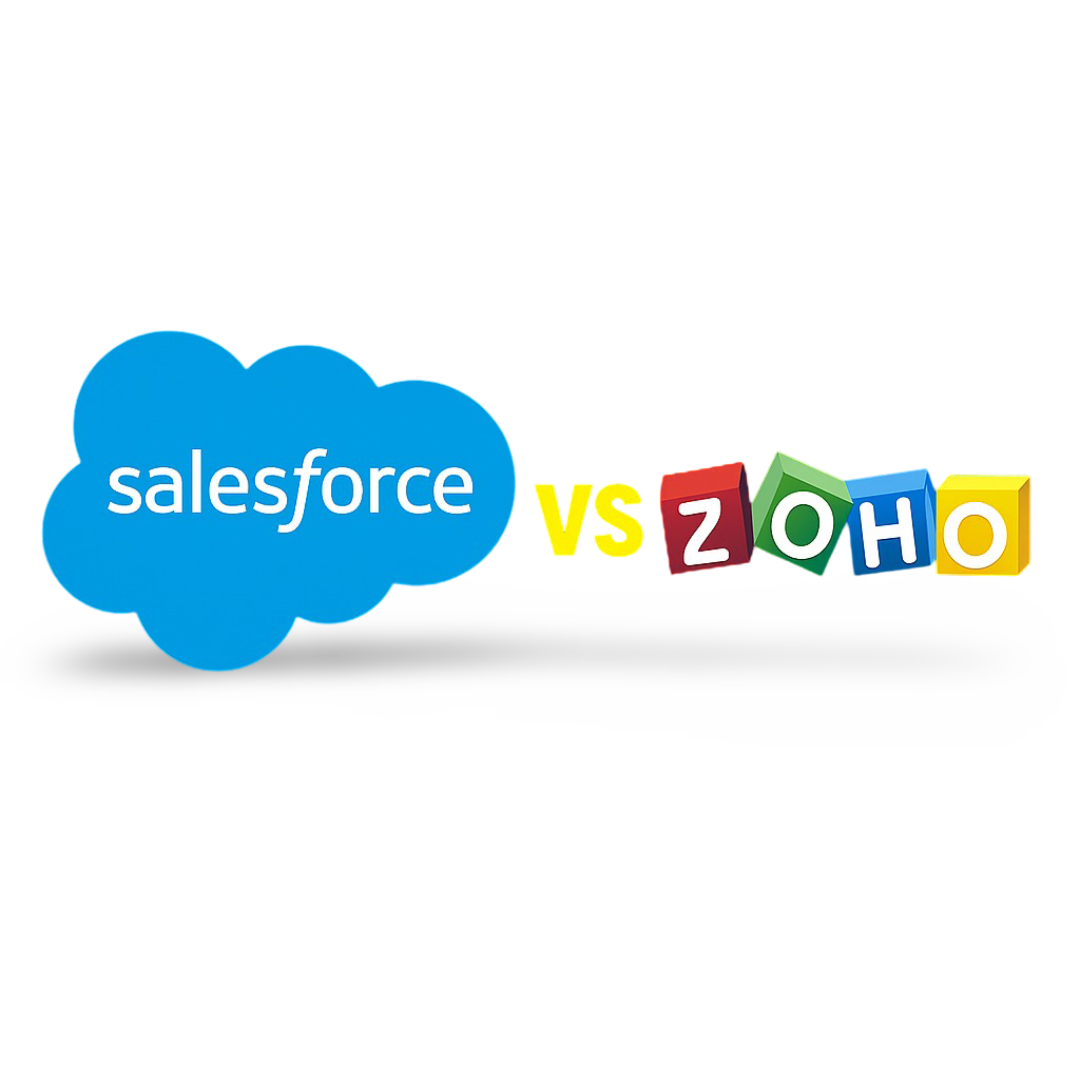Salesforce vs Zoho – A Comprehensive CRM Comparison
Salesforce and Zoho CRM stand as two of the most popular customer relationship management platforms in 2025. While Salesforce dominates the enterprise CRM space, Zoho CRM offers an accessible, cost-effective solution tailored to small and mid-sized businesses. Choosing the right CRM impacts more than just your software—it shapes how you manage growth, engage customers, streamline operations, and empower your team.
This detailed comparison helps you navigate pricing, features, scalability, and usability so you can make the best decision for your business.
Get started
Pricing and Plans Comparison (Starting Monthly Costs per License)
Salesforce Pricing Tiers
Agent 1 Sales
Zoho CRM Pricing Tiers
Small teams needing essential features
Mid-sized businesses with automation needs
Larger businesses with deeper customization
💡 Zoho CRM is more affordable across tiers, making it a favorite for startups and small businesses. Salesforce offers more enterprise-grade capabilities but at a higher cost.
Salesforce and Zoho Features and Functionality
Salesforce Features
-
Customizable sales pipelines
-
Workflow automation with Flow Builder
-
AI forecasting with Einstein
-
Territory & role-based access
-
Lightning App Builder
-
Comprehensive Service & Marketing Clouds
Zoho CRM Features
-
Multichannel communication (email, chat, phone)
-
Workflow automation with Blueprint
-
AI assistant (Zia) for lead scoring and suggestions
-
Web forms and sales signals
-
Omnichannel support in one dashboard
-
Integration with other Zoho apps (Books, Mail, Campaigns)
Customization and Scalability
Criteria
Salesforce
Zoho CRM
Zoho CRM
Custom Fields & Objects
Integration and Compatibility
Platform
Integration Sources
Third-Party App Ecosystem
🔌 Salesforce is ideal for enterprise-wide integrations, while Zoho offers seamless tools for teams already using the Zoho ecosystem.
-
Lightning Experience UI
-
Complex navigation with layers of options
-
Requires training for optimal use
-
Clean, modern, and beginner-friendly
-
Drag-and-drop modules and layout editor
-
Streamlined menus with less technical clutter



Customer Support and Training
Criteria
Salesforce
Zoho CRM
📚 Salesforce provides world-class training for complex deployments. Zoho is easier to self-learn but offers less enterprise-level onboarding.
Analytics and Reporting
Analytics Tool
Salesforce
Zoho CRM
📈 Salesforce excels in enterprise analytics and automation. Zoho provides functional and fast visual insights at a fraction of the cost.
-
Built for complex business structures
-
Deep automation and workflow capabilities
-
Extensive app ecosystem and integrations
-
Strong support network and documentation
-
High cost, especially at enterprise level
-
Steep learning curve for non-tech users
-
Requires configuration to unlock full potential
-
Affordable and scalable pricing
-
Fast onboarding and user-friendly UI
-
Solid AI tools like Zia included early
-
Native ecosystem with Zoho apps
-
Limited customization for large organizations
-
Some enterprise features only in top-tier plans
-
Smaller app marketplace compared to Salesforce
Absolutely. Salesforce has greater automation, customization, and enterprise-grade tools—but it comes at a higher cost and complexity.
Yes, both offer mobile apps, cloud hosting, and offline access features.
Both Salesforce and Zoho CRM are powerful tools—but designed for different types of teams.

Whichever you choose, the right partner can help you maximize your CRM investment. AeyeCRM helps businesses implement and integrate platforms like Salesforce and Zoho—tailored to your growth strategy.
Get Expert Cloud CRM Guidance Today






